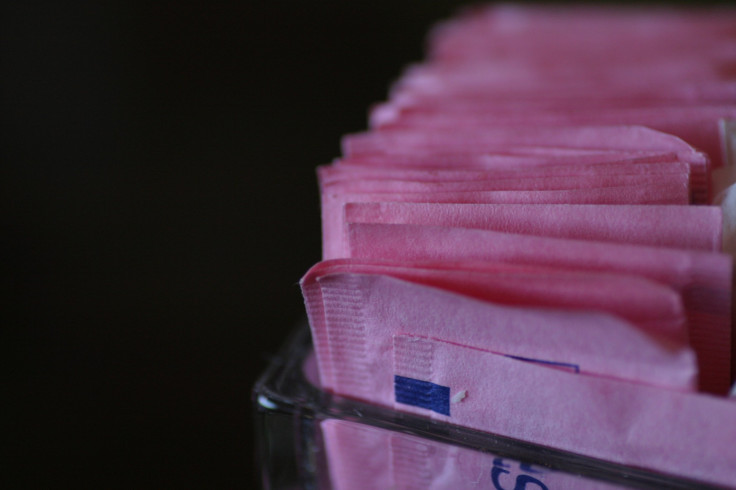Chemical Found In Widely Used Artificial Sweetener Damages DNA
A widely used no-calorie sweetener contains a chemical that damages DNA, a new study has found.
Researchers from North Carolina State University found that sucralose-6-acetate – a chemical formed while digesting the artificial sweetener sucralose and is sold under the name Splenda – can be genotoxic.
A substance is called genotoxic when it binds directly or acts indirectly to DNA and causes damage by affecting the enzymes involved in DNA breakup in the cells.
The researchers said sucralose-6-acetate is not just formed during the digestion of the sweetener but also exists in trace amounts in the product itself.
The same research team previously found that several fat-soluble compounds are produced after sucralose ingestion, sucralose-6-acetate being one of them. The latest study raises questions about how the sweetener may contribute to health problems.
"Our new work establishes that sucralose-6-acetate is genotoxic. We also found that trace amounts of sucralose-6-acetate can be found in off-the-shelf sucralose, even before it is consumed and metabolized," Susan Schiffman, corresponding author of the study, said in a news release.
"To put this in context, the European Food Safety Authority has a threshold of toxicological concern for all genotoxic substances of 0.15 micrograms per person per day. Our work suggests that the trace amounts of sucralose-6-acetate in a single, daily sucralose-sweetened drink exceed that threshold. And that's not even accounting for the amount of sucralose-6-acetate produced as metabolites after people consume sucralose," Schiffman added.
Researchers evaluated the genotoxicity through in vitro experiments by exposing human blood cells to sucralose-6-acetate. Similar in vitro experiments using human gut tissues were conducted to examine the impact on the gut, as earlier studies showed sucralose has adverse effects on it.
"When we exposed sucralose and sucralose-6-acetate to gut epithelial tissues – the tissue that lines your gut wall – we found that both chemicals cause 'leaky gut.' Basically, they make the wall of the gut more permeable. The chemicals damage the 'tight junctions,' or interfaces, where cells in the gut wall connect to each other," Schiffman said. "A leaky gut is problematic, because it means that things that would normally be flushed out of the body in feces are instead leaking out of the gut and being absorbed into the bloodstream."
After the exposure to sucralose, the gut cells showed increased activity in genes related to oxidative stress, inflammation and carcinogenicity.
The researchers said the safety and regulatory status of sucralose should be revised due to concerns about potential health effects. They encourage people to avoid products with sucralose.

Published by Medicaldaily.com



























